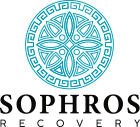Clonidine is a medication primarily prescribed to treat high blood pressure; it works by relaxing blood vessels and decreasing heart rate to improve blood flow. However, when misused, clonidine can lead to addiction due to its sedative effects, which can create a dependency as users seek its calming sensations beyond medical guidance.
If you or someone you know is struggling with prescription pill addiction, seeking professional treatment can be a pivotal step toward recovery and a healthier future. Empowering oneself through support groups, counseling, and medical intervention offers a compassionate path to overcoming dependency and reclaiming control over one’s life. Call 866.374.0541 or connect with Sophros Recovery online to learn more about your options for prescription pill addiction treatment in Jacksonville.
What Is Clonidine?
Clonidine is a medication primarily used to treat high blood pressure, offering a sense of control and stability for those managing this condition. It works by targeting specific receptors in the brain to lower heart rate and relax blood vessels, which decreases blood pressure. This medication can also be employed in treating certain other conditions, such as attention deficit hyperactivity disorder (ADHD) and withdrawal symptoms.
Understanding its role in medical management can empower individuals by providing them with the knowledge needed to make informed decisions about their health. It’s crucial to use clonidine under the guidance of a healthcare professional who can compassionately address any concerns and tailor the treatment to fit individual needs.
Is Clonidine Considered a Controlled Substance?
No, clonidine is not considered a controlled substance in the United States. It is a prescription medication, which means it can only be obtained with a prescription from a licensed healthcare provider. While clonidine does not fall under the category of controlled substances, it is essential to use it responsibly and according to medical advice to ensure safety and effectiveness. Through understanding and cooperation with healthcare professionals, individuals can navigate their treatment plans with clarity and assurance.
Knowing When to Seek Help in Treatment
Seeking help in treatment for clonidine misuse or addiction is a brave and empowering step toward recovery. Understanding when to seek help is critical in ensuring effective management and safety. Here are some key indicators that it might be time to reach out for professional support:
- Inability to adhere to prescribed dosage – If you find it difficult to stick to the prescribed dosage and are taking more clonidine than recommended, it’s important to seek help.
- Experiencing withdrawal symptoms – Noticeable withdrawal symptoms when not taking clonidine suggest a dependency, which requires medical attention.
- Changes in mood or behavior – Significant shifts in mood or behavior, including increased irritability or depression, can be signs of clonidine misuse.
- Neglecting responsibilities – If clonidine use interferes with daily responsibilities at work, school, or home, it may be an indication to seek professional guidance.
- Health concerns – Experiencing negative physical health effects that could be linked to clonidine misuse should prompt a discussion with a healthcare provider.
Reaching out for help shows strength and a commitment to wellness. Professionals can offer compassionate support and tailored treatment options, empowering individuals on their journey to recovery and healthier living.
Begin Prescription Pill Addiction Treatment at Sophros Recovery Today — Contact Us
At Sophros Recovery, we provide a nurturing environment for individuals seeking to overcome prescription pill addiction. Our compassionate team is dedicated to empowering clients with personalized treatment plans that prioritize safety, understanding, and long-lasting recovery. Reach out to us today at 866.374.0541 or online to take the first step toward reclaiming your health and well-being.







